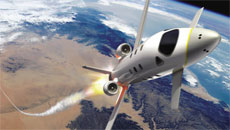Breath alcohol testers or breathalysers that traffic police use to check your bubbly quotient when you drive can soon be things of the past. No, don't feel excited yet.
A laser device that can detect alcohol in moving cars has been developed. It 'senses' the presence of alcohol vapour in cars and alerts the cops waiting at the next corner to nab you.
"We have demonstrated how a laser device could be effectively used for detecting drunken drivers and, thereby, helping to reduce the number of accidents caused by drivers under the influence of alcohol," said Marco Gianinetto from Politecnico di Milano (Polytechnic University of Milan), Italy.
A similar technology may be developed in the future to detect different chemical compounds, enabling the detection of drivers under the influence of other intoxicants, he added.
The use of the device is simple.
The laser system is set up on the side of the road to monitor each car that passes by.
If alcohol vapours are detected in the car, a message with a photo of the car including its number plate is sent to a police officer waiting down the road.
Then, the police officer stops the car and checks for signs of alcohol using conventional tests.
"The device would also identify cars where the driver is sober but the passengers are not, or if there is spilled alcohol in the car," said Jaroslaw Mlynczak from Military University of Technology in Warsaw, Poland.
"The device will surely decrease the number of cars that have to be checked by police and, at the same time, will increase efficacy of stopping drunken drivers," he added.
The device can detect the presence of alcohol vapours at concentrations of 0.1 percent and greater.
There seems to be some countermeasures such as driving with windows open that can be applied by drivers to deceive the system.
"However, such situations are very easily detected by the system that sends this information to police indicating that the car should be checked," the authors wrote.





